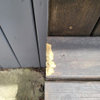Over Run by Four Lined Bugs
covella
16 years ago
Featured Answer
Sort by:Oldest
Comments (14)
Kimmsr
16 years agosharpshin
16 years agoRelated Professionals
Maple Valley Landscape Architects & Landscape Designers · East Rancho Dominguez Landscape Architects & Landscape Designers · Montgomeryville Landscape Architects & Landscape Designers · Simi Valley Landscape Architects & Landscape Designers · Anderson Landscape Contractors · Columbine Landscape Contractors · Fair Oaks Landscape Contractors · Haverhill Landscape Contractors · Lakeville Landscape Contractors · Middletown Landscape Contractors · Oak Forest Landscape Contractors · River Ridge Landscape Contractors · Irvington Landscape Contractors · Glenvar Heights Swimming Pool Builders · Pflugerville Swimming Pool BuildersKimmsr
16 years agosharpshin
16 years agoKimmsr
16 years agoKimmsr
16 years agokimpa zone 9b N. Florida.
16 years agocovella
16 years agocovella
16 years agoleejburton_charter_net
13 years agocovella
13 years agoKimmsr
13 years agoleejayburton
13 years ago
Related Stories

GARDENING AND LANDSCAPINGBid Bad Garden Bugs Goodbye and Usher In the Good
Give ants their marching orders and send mosquitoes moseying, while creating a garden that draws pollinators and helpful eaters
Full Story
EVENTSEnjoy Plantings, Eat Bugs and Learn at the Australian Garden Show
Indulge your senses at this four-day celebration of gardening, food and more in Sydney — and don't forget to try the crickets
Full Story
GARDENING AND LANDSCAPINGPorch Life: Banish the Bugs
Don't let insects be the bane of your sweet tea and swing time. These screening and product ideas will help keep bugs at bay on the porch
Full Story
GARDENING AND LANDSCAPINGBreezy and Bug-Free Modern Porches
Screening keeps pests out of these diverse porches across the U.S., while thoughtful designs keep them visually appealing
Full Story
DIY PROJECTS12 Signs You've Caught the DIY Bug
Been making inventive things from scratch? Repurposing salvaged pieces creatively? It may be more serious than you think
Full Story
ORGANIZINGDo It for the Kids! A Few Routines Help a Home Run More Smoothly
Not a Naturally Organized person? These tips can help you tackle the onslaught of papers, meals, laundry — and even help you find your keys
Full Story
MONTHLY HOME CHECKLISTSYour April Checklist for a Smooth-Running Home
Shake off the winter blues and spring into action to get your home in the spirit of the new season
Full Story
WORKING WITH PROSYour Guide to a Smooth-Running Construction Project
Find out how to save time, money and your sanity when building new or remodeling
Full Story
MONTHLY HOME CHECKLISTSDecember Checklist for a Smooth-Running Home
It's time to add weather stripping, plan for holiday home safety, consider backup heating, check your emergency kits and more
Full Story
MONTHLY HOME CHECKLISTSFebruary Checklist for a Smooth-Running Home
Spend snowy days sprucing up, cleaning out and making your bedroom romance-ready
Full Story







sharpshin